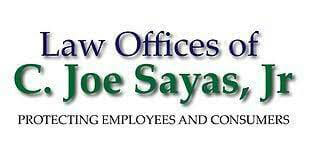How long should employers allow modified work duty for disabled workers?

Elizabeth Carter worked at Dunn-Edwards, the paint store, when her medical condition prevented her from lifting more than 20 pounds. She could, however, still continue to perform most of her essential duties. Her employer thus provided modified work duty by allowing her to ask co-workers for help whenever she needed to lift anything heavier than 20 pounds.
Carter was later informed by the employer that she had exhausted the company’s 90-day modified-duty policy. Carter was told to obtain medical release allowing her to lift up to 65 pounds, or take a leave of absence. Because she could not obtain such a release, Carter took a medical leave of absence. However, when she tried to return to work, she still had the 20 pound lifting restriction. As a result the company fired her.
Carter sued the employer for disability discrimination, failure to accommodate, failure to engage in the interactive process, failure to prevent discrimination and harassment in violation of the Fair Employment and Housing Act (FEHA), and retaliation. Carter contended that the employer’s policy of accommodating employees’ disability for only 90 days without engaging in further interactive process and without performing an individual assessment was illegal.
The employer countered that Carter was terminated because she could not perform the essential functions of her job. The employer claimed it was not able to provide Carter any other reasonable accommodation besides a leave of absence.
The case was decided via arbitration. The arbitrator found for the employer on Carter’s claims for retaliation for requesting a disability accommodation, and failure to prevent discrimination and harassment. Additionally, the arbitrator found the company’s 90-day policy was lawful.
However, the arbitrator found in Carter’s favor on her claims of disability discrimination, wrongful discharge in violation of public policy, failure to accommodate, and failure to engage in the interactive process. The arbitrator ruled that the company discriminated against Carter by not re-assigning her essential lifting functions to other employees.
California law prohibits discrimination based on disability or medical condition. The employer has a duty to provide reasonable accommodation to disabled employees to enable them to work despite their disability. Depending on the employee’s specific restrictions and the employer’s circumstances, an example of reasonable accommodation would be to make facilities accessible to and usable by disabled individuals; offer part-time or modified work; or providing extension of a medical leave.
In Carter’s case, the employer had a duty to engage in interactive process and find out whether reasonable accommodation would allow her to perform the job duties. It appears that the employer was initially able to provide reasonable accommodation by allowing Carter to ask for help whenever she needed to lift anything more than 20 pounds. The employer eventually took away this accommodation, reasoning that it could only accommodate Carter for 90 days.
This, however, is contrary to FEHA law. The employer’s duty to accommodate may extend beyond 90 days, if such accommodation will allow the employee to perform the essential functions of her job. Even though the arbitrator found the 90-day cut-off lawful, the arbitrator nevertheless ruled that the employer should have continued to provide reasonable accommodation by re-assigning Carter’s heavy-lifting tasks to other employees.
The Daily Journal reports that Carter was awarded damages totaling $80,880 for loss of income and emotional distress. The arbitrator also awarded Carter attorney fees and costs, bringing the total award to Carter to $974,219.74. The employer is currently seeking to overturn the arbitrator’s decision.
The Law Offices of C. Joe Sayas, Jr. welcomes inquiries about this topic. All inquiries are confidential and at no-cost. You can contact the office at (818) 291-0088 or visit www.joesayaslaw.com. [For more than 25 years, C. Joe Sayas, Jr., Esq. successfully recovered wages and other monetary damages for thousands of employees and consumers. He was named Top Labor & Employment Attorney in California by the Daily Journal, consistently selected as Super Lawyer by the Los Angeles Magazine, and is a past Presidential Awardee for Outstanding Filipino Overseas.]

